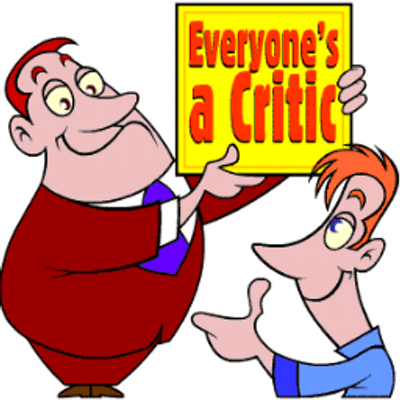
Nature has made us all critics. And consciously or not, and oftener than we perhaps imagine, we criticize and dissect indiscriminately, doing no good probably to any one, and no harm but to ourselves. Criticism, to be sure, has its proper place and its occasional benefits. More often though, it degenerates into mere fault-finding, gets us into bad ways and, at best, is an indifferent tool to aid in the general up building of life.
Yet there are times and occasions when criticism is helpful. Properly controlled and held in check. It has exerted a wholesome influence. For it urges us on to better things and dwells with insistence upon the ideal which so many of us like to aim at for the moment and deviate from in the actual stress of life.
A critic who can see the truth always, and always tell the truth, would be an ideal one. To him the work of another appears in no monotone of wholly good or unmitigated evil. His eye is sharp and sensitive, his ear keenly attuned to discord and harmony, his mind well-balanced, and above all he comes to his work with no preconceived prejudice or partiality. He does not praise the complete work when the part alone deserves praise, nor crush the entire work because a part only is worthy of blame. Such is the lofty and honorable position of the ideal critic, and whatever is good in all criticism will be colored to a greater or less extent by these qualities.
Moreover an ideal critic is animated by the spirit of optimism. You may find this odd, but there is no conflict here.As a critic you are expected to find faults, and so you are expected to be a morose individual, pessimistic and always looking for the bad. If, however, one looks deeper he will see the good—the greater good which far outbalance the evil.
Most critics are ill-equipped with these qualities of mind and heart. Besides they are inclined to attack everything indiscriminately, or fail to discriminate between the good and the bad. Hence the ill-repute into which criticism has fallen. To people in general, no keen judges and rather hasty in generalizing, a critic is either a “knocker” or a “puffer.” The one he may almost admire for his virility; for the weakness of the latter he has only contempt.
Progress comes from the knowledge of imperfection and the striving after perfection. If the wrong is not known it cannot be righted; if the good is not comprehended it cannot be sought. Men as a rule are but imperfect judges of their own work. They have looked so long upon the high lights that their eyes are blinded as to the shadows. The capable and sincere critic can enlighten such and guide them to a proper use of their own capabilities. Such a critic will encourage and not dishearten. Like the mother whose after caress takes from the reproof which she has administered the sting it would ordinarily possess, the helpful critic may at times be severe but his severity is always tempered by commendation. Most men, we can credit with good intentions.
Thus it is that criticism can be made one of the great forces that keep the world moving towards progress. The invidious may class together as cranks the good critic and bad. This, however, is an injustice. The destructive critic is a pest; the ideal one may, it is true, sometimes be a crank. But in the words of Mark Twain, “The crank, my son, makes the wheels go round.

Be the first to comment